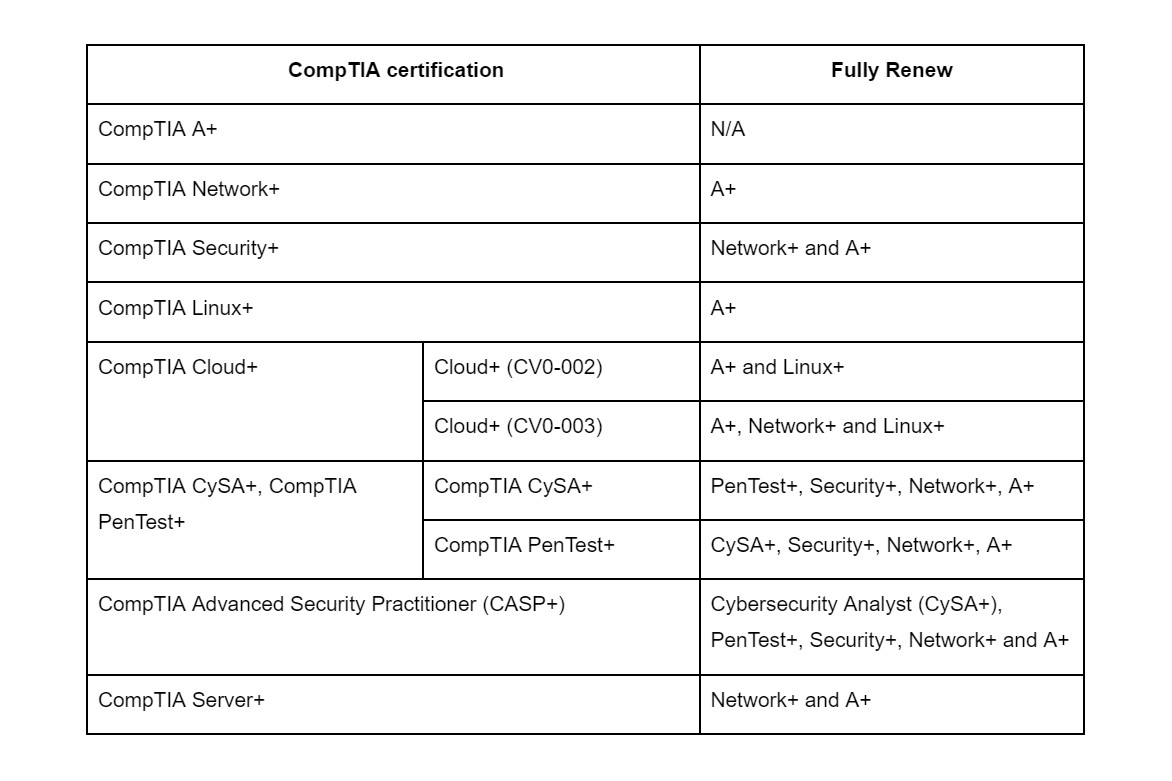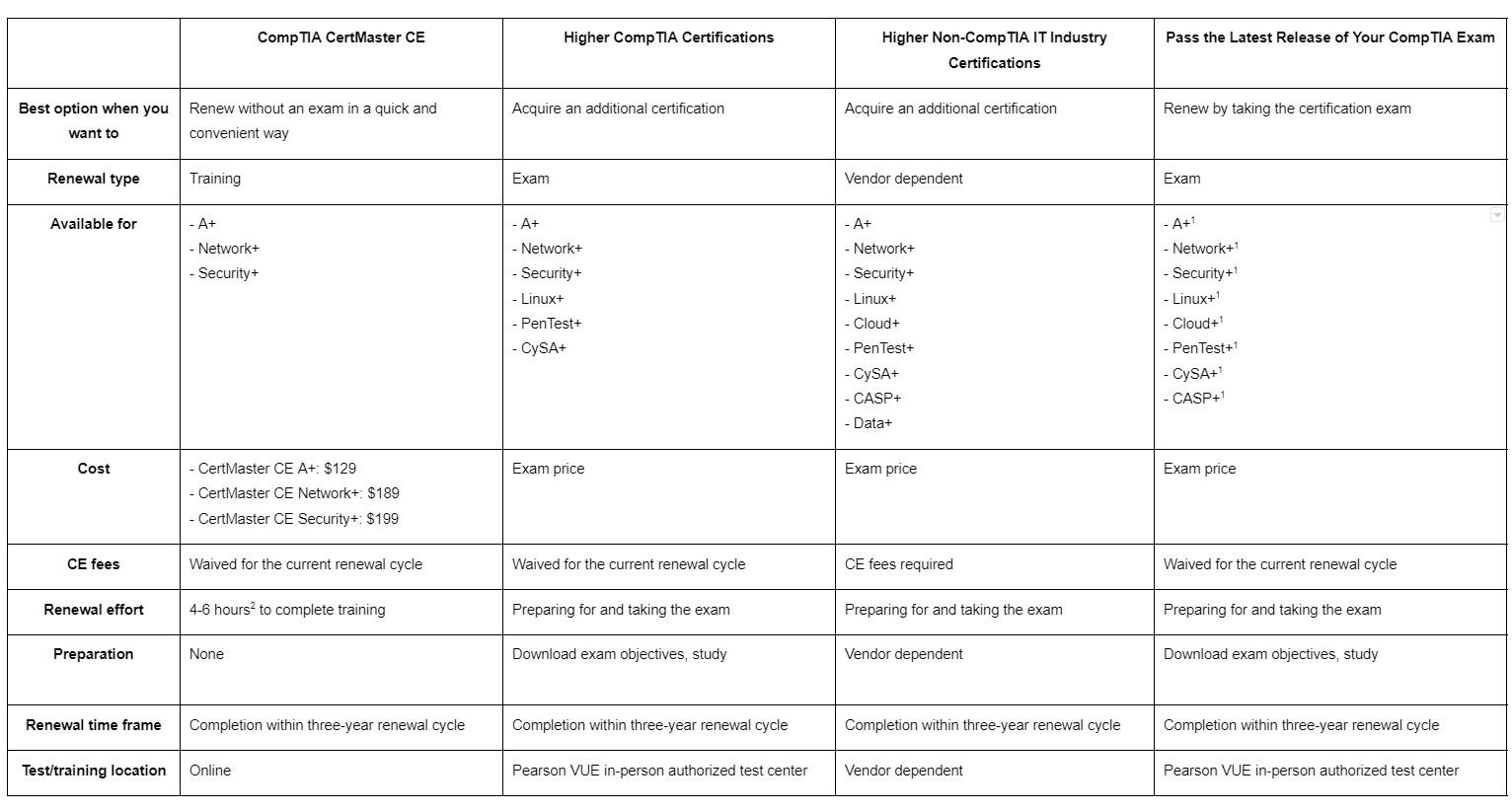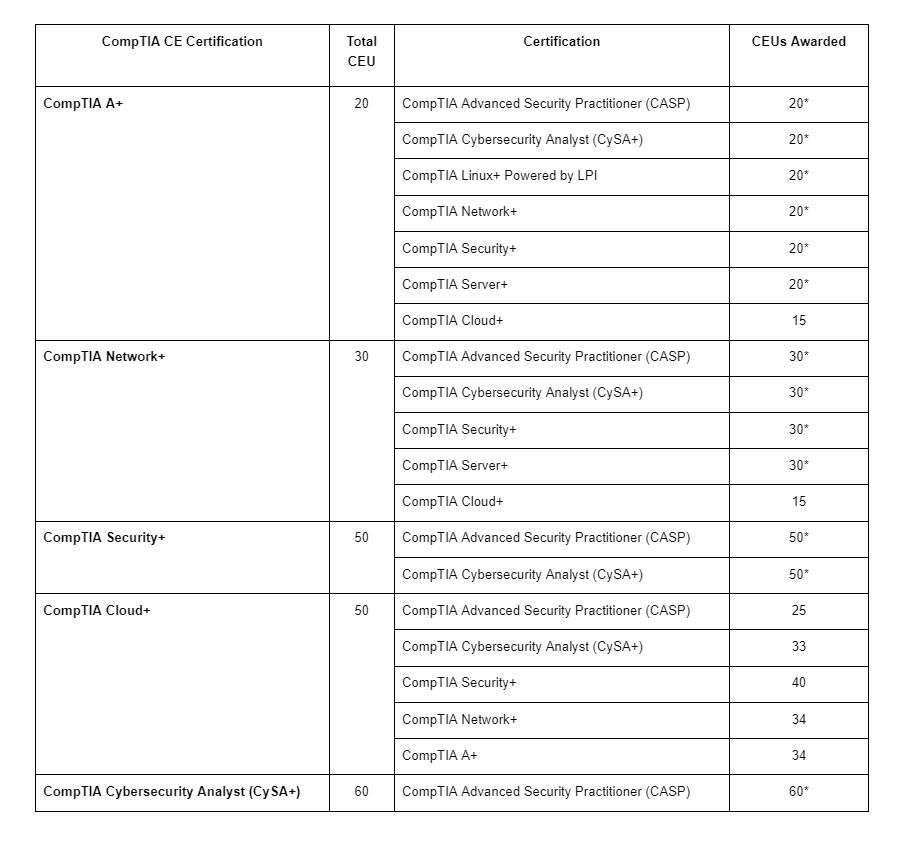If you are questioning “What is the difference between Security+ and Security+ CE?“, then this comprehensive guide is for you! This guide from IT Exams breaks down the definition and overview of both certifications, the topics covered, the certification process, and maintenance requirements. You’ll also learn about the benefits of holding these certifications, job opportunities and career growth, and factors to consider when choosing between the two. Get all the information you need to make an informed decision about “What Is The Difference Between Security+ And Security+ CE?”

Overview Of Security+
Security+ is a worldwide recognized certificate for IT security specialists. It is a vendor-neutral credential that covers key security principles such as threat management, incident response, cryptography, and risk reduction.
Benefits and Purpose
The goal of Security+ is to validate IT security professionals’ knowledge of critical security issues. With this certification, IT professionals may demonstrate their experience in safeguarding networks, systems, and applications while also laying the groundwork for higher security certifications.
Exam Prerequisites
To obtain the Security+ certification, individuals must pass a single comprehensive test covering a wide range of security subjects. The test consists of 90 multiple-choice and performance-based questions to be answered in 90 minutes.
Exam Coverage
The Security+ exam examines expertise in several areas, including cryptography, access control, network security, threat management, and security operations, as well as the most recent security breakthroughs such as IoT, virtualization, and cloud computing.
Career Opportunities
Possession of a Security+ certificate opens doors to a variety of security-related careers, such as security consultant, network administrator, security analyst, and security engineer, as well as opportunities for advancement in the field by demonstrating a commitment to staying current with the latest security technologies and best practices.
Read more >> Top 5 Highest Paying CompTIA Certifications
Overview Security+ CE
The Security+ Continuing Education (CE) program is an important next step for IT professionals who have earned the prestigious Security+ certification. This continuing certification program requires holders to recertify every three years, infusing the area of cybersecurity with a steady supply of current information and experience.

Benefits and Purpose
The Security+ CE certification keeps IT workers at the forefront of cybersecurity innovations. It has various advantages, which include:
- Maintaining current knowledge and competence in the subject of cybersecurity.
- A demonstration of steadfast dedication to professional advancement.
- Keeping up with the ever-changing threat landscape.
- Improving professional opportunities by displaying current knowledge and skills.
Exam Prerequisites
Unlike traditional certification tests, the Security+ CE does not require retesting. Instead, it requires participants in professional development events to acquire Continuing Professional Education (CPE) credits. Attending conferences, taking classes, or conducting research are examples of these activities. The following subjects provide an overview of the information and abilities that persons may aim to develop in order to gain CPE credits and recertify their Security+ CE certification:
- Network security
- Compliance and operational security
- Threats and vulnerabilities
- Application, data, and host security
- Access control and identity management
- Cryptography
Career Opportunities
The Security+ CE certification demonstrates a person’s commitment to professional development and capacity to keep current in the field of cybersecurity. It is a useful asset for IT workers looking to develop their careers since it opens doors to positions such as:
- Cybersecurity analyst
- Network security administrator
- Information security analyst
- Security Engineer
- Information assurance specialist
In brief, the Security+ CE offers IT professionals a unique chance to demonstrate their dedication to professional growth as well as their understanding of current cybersecurity knowledge and abilities. Not only does the certification provide several employment prospects, but it also increases one’s competitiveness in the labor market.
What Is The Similarity Between Security+ And Security+ CE?

There are some similarities between Security+ and Security+ CE. CompTIA, a well-known and reputable company in the field of IT certifications, provides both certificates. They are both geared toward those who wish to demonstrate their cybersecurity knowledge and experience.
Core Security Concepts
Risk management, cryptography, network security, identity and access management, security operations, and incident response are all covered in Security+ and Security+ CE. These are critical areas of knowledge for anybody interested in working in cybersecurity, and having a thorough understanding of them is crucial for success in this industry.
Vendor-Neutral Certifications
This implies that they are not concerned with any one vendor’s goods or technology, but rather with the larger ideas and concepts of cybersecurity. Individuals that deal with a number of different systems and suppliers and wish to demonstrate their awareness of cybersecurity concepts and best practices may find them valuable.
Widely Recognized Cybersecurity Certifications
Both certificates are worldwide acknowledged as indicators of cybersecurity skills. When hiring for cybersecurity positions, employers throughout the world search for candidates who have these credentials. This implies that having Security+ or Security+ CE can lead to a variety of work options and career pathways in the cybersecurity industry.
Exam Format
CompTIA, the certifying body, provides computer-based examinations for both the Security+ certification and the Security+ CE tests. The Security+ test is a 90-minute, 90-question examination that includes multiple-choice and performance-based questions and is available in English, German, Japanese, and Portuguese. Individuals must get a minimum score of 750 out of a potential 100-900 points to pass.
On this website, we offer hundreds of free CompTIA Security practice test questions to help you easily take an advanced step in the Security field.
What Is The Difference Between Security+ And Security+ CE?
Focus Areas
The Security+ certification is designed to provide individuals with a thorough grasp of the fundamental concepts of information security. The test covers a wide range of topics, including network security, risk management, threat management, and incident response, with the goal of equipping candidates with a solid foundation in information security concepts that can be used across several sectors and positions.
By mandating continuing education courses, the Security+ CE aims to keep individuals’ knowledge and abilities in the field of information security up to date. This emphasis is especially important for people working in rapidly changing industries or who want to advance in their professions.
Exam Cost
The cost of the Security+ certification varies by testing facility and area, but is normally approximately $320, whereas the cost of the Security+ CE recertification is based on the selected continuing education courses, but is often less expensive than the first certification exam. Both certifications are available at approved CompTIA exam facilities across the world.
Maintenance
Individuals who hold the Security+ certification must renew their certification every three years. To keep Security+, applicants must obtain 50 Continuing Education Units (CEUs) during a three-year period. Attending approved training programs, engaging in webinars or conferences, authoring security-related papers, or obtaining higher-level certifications are all ways to earn CEUs.
Individuals who possess the Security+ CE certification must acquire CEUs on an ongoing basis to retain their certification because it is an extension of the Security+ certification. Security+ CE holders, like Security+, must collect 50 CEUs in three years. Security+ CE holders, on the other hand, must additionally sign a CompTIA CE program agreement and follow the CompTIA Code of Ethics.
Read more >> What Are The Categories Of Volatility?
Does The Employer Want Security+ or Security+ CE?
In principle, if a job posting specifies Security+, possessing either one will get you through HR. And once you are in the job interview, if the interviewer can tell you that your knowledge is up to date, the interviewer may not care when you received the certification or if you are paying dues.
A job posting may state Security+ce and demand a current Security+ce in good standing. This is especially true when it comes to federal contracts. Most government contracts require certifications at a certain level or higher, so if it says Security+ CE and all you have is the old Security+ and no higher-level certifications like CEH, CISM, or CISSP, you will need to sit for Security+ CE and begin paying the annual fee and submitting CEUs.
However, if you already passed Security+, you should have no issue passing the latest edition of the test.

How To Renew Your CompTIA Certification?
The following certificates are valid for three years from the date of certification (acquired on or after January 1, 2011):
Renew with a Single Activity
You have various alternatives for renewing your CompTIA certification by completing a single activity.
Complete CompTIA CertMaster CE
- CertMaster CE for A+: available for individuals certified in exam versions 801/802 or earlier
- CertMaster CE for Network+: available for individuals certified in exam version N10-005 or earlier
- CertMaster CE for Security+: available for individuals certified in exam version SY0-004 or earlier
Earn a higher-level CompTIA certification
Earning a valid higher-level CompTIA certification allows you to renew your lower-level CompTIA certifications as well. Read on to find out which CompTIA certifications will automatically renew others.

Earn a Non-CompTIA Certification
Continuing Education Units (CEUs) Awarded for Activity:
- CompTIA A+: 20 CEUs
- CompTIA Network+: 30 CEUs
- CompTIA Security+: 50 CEUs
- CompTIA Cloud+: 50 CEUs
- CySA+: 60 CEUs
- CASP: 75 CEUs
Pass the Latest Release of the CompTIA Exam
For example, you may renew your CompTIA Security+ N-007 certification by taking and passing the CompTIA Security+ N-008 examinations.
Compare Single-Activity Renewal Options

(1) Available if there is a newer version of the CompTIA exam for the certification you currently hold.
(2) Estimate based on typical individual experience.
Renew with Multiple Activities
Alternatively, you can obtain the amount of CEUs required to renew your CompTIA certification by engaging in a variety of activities.
Earn an Additional CompTIA Certification
This table shows how to renew your CompTIA Security plus CE certification, the total CEU requirements for renewal, and the CompTIA certifications that count toward renewal.

(*) Items automatically renew the certification you are seeking to renew as they meet the total CEU requirements.
Complete training and higher education
Review the table below to see the maximum number of CEUs you can get for each qualifying activity during your three-year renewal cycle.

Participate in IT industry activities
Review the table below to see the maximum number of CEUs you can get for each qualifying activity during your three-year renewal cycle.

Publish a relevant article, white paper, blog post, or book
Review the table below to see the maximum number of CEUs you can get for each qualifying activity during your three-year renewal cycle.

Gain related work experience
Review the table below to see the maximum number of CEUs you can get for each qualifying activity during your three-year renewal cycle.

FAQs

What does CE stand for in security+?
Can I enroll in the Security+ CE program without obtaining the Security+ certification?
Yes, without previously acquiring the Security+ certification, you can participate in the Security+ CE program. However, Security+ CE is an advanced-level certification that requires a greater degree of knowledge and expertise than Security+. Before studying Security+ CE, candidates should have at least five years of experience in IT administration with an emphasis on security. Without this degree of expertise, passing the Security+ CE test and reaping the full benefits of the advanced-level certification may be challenging.
What is the difference between CEH and SEC+?
What is the focus of Security+ CE?
The primary objective of Security+ CE is to provide individuals with a platform to keep their information security knowledge and skills current and to keep pace with the latest advancements and developments in the field.
Can I pass Security+ without A+?
Although Security+ holders receive higher pay than A+ holders, Security+ remains an entry-level certification. The A+ certification is not required before studying Security+; however, it is suggested that you are familiar with the fundamentals of computers and security.
Final Words
You have discovered the solution to the question “What is the difference between Security+ and Security+ CE?” You might rely on it to help you locate the perfect career for you.
A job posting may state CompTIA Security+ CE and demand a current CompTIA Security+ CE in good standing. This is especially true for federal contracts. Most government contracts require certifications at a certain level or higher, so if it says Security+ CE and you only have the old Security+ and no higher-level certifications such as CISM, CISSP, or CEH, you will need to sit for Security+ CE and begin paying the annual fee and submitting CEUs.
[Sassy_Social_Share]



